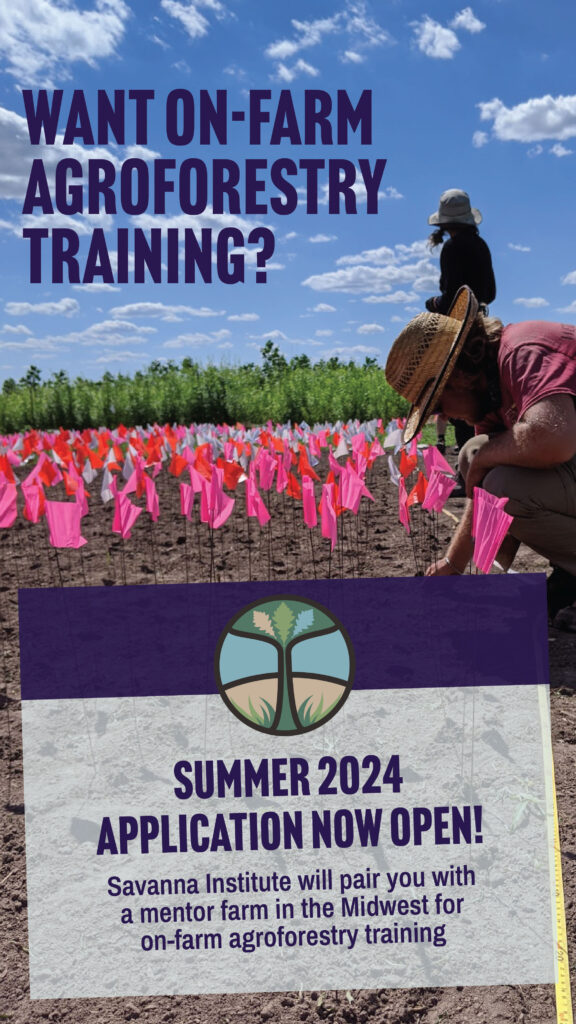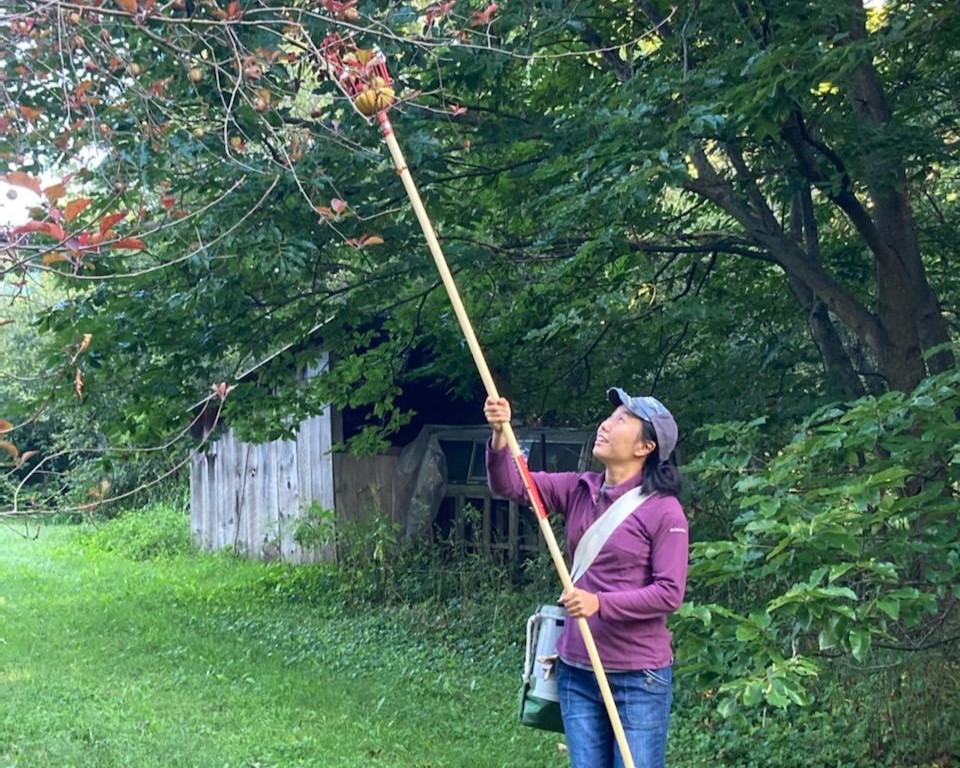
🔊Shower Goats and Arctic Kiwis with Xinyuan Shi
Xinyuan Shi spent 2020 as an Agroforestry Apprentice working with chestnut growers Greg and Amy Miller at Route 9 Cooperative in Ohio. Last year, Xinyuan joined the Savanna Institute staff as a research fellow to update a USDA guidebook on conservation buffers. Now in her final year with the University of Missouri’s Agroforestry Master’s Program, Xinyuan is on an agroforestry career path that we hope others will follow.
“I loved my experience,” Xinyuan says. “That family is just awesome. They know so much about nut crops and they’ve been growing chestnuts for 30+ years, they’ve got established orchards, they’ve got shipping and delivery systems all in place, a processing facility – it was awesome to see.”
APPLY TODAY
to apprentice with Route 9 Cooperative or other Midwest mentor farms!
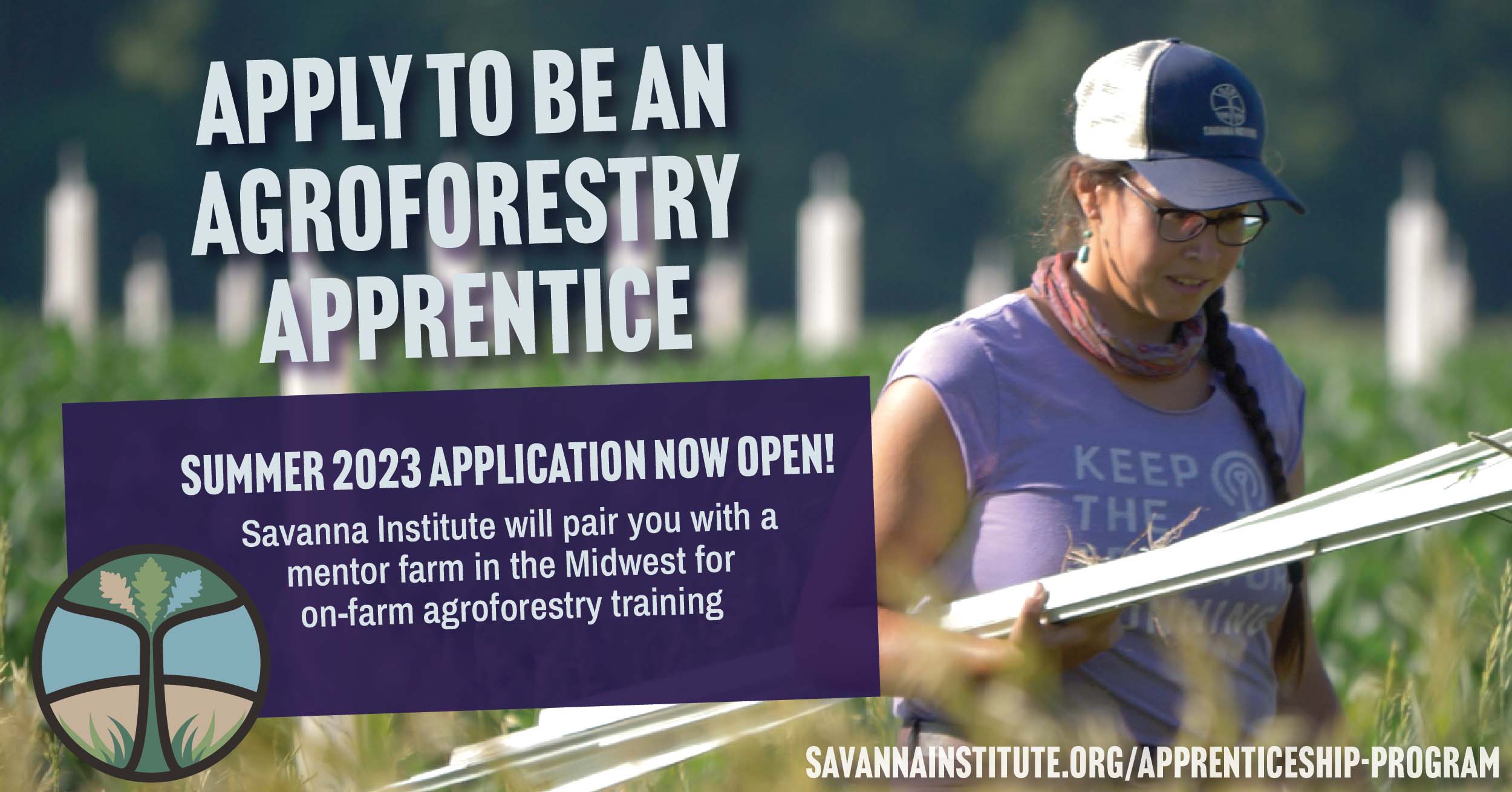
Raised in Upstate New York, Xinyuan gained experience in tropical agroforestry while serving as a Peace Corps volunteer in Zambia. It was while working in Zambia that, as she tells podcast host Jacob Grace, she found a baby goat in her shower one day. In the latest episode of the Perennial AF podcast, Xinyuan shares this and other stories from her time in Zambia and in the Agroforestry Apprenticeship, and talks about her new favorite fruit, the Arctic kiwi.
In her work as a graduate student in the University of Missouri’s Agroforestry Master’s Program, Xinyuan and her advisor Ashley Conway-Anderson recently published a literature review of silvopasture research across the world. As a Savanna Institute Research Fellow, Xinyuan is now working with the USDA National Agroforestry Center to update their 2008 USDA Conservation Buffers guidebook.
“We might actually end up renaming it to something like ‘multifunctional buffer’,” Xinyuan says, “because we’re really not just looking at the conservation aspect of it. We’re looking at all the different uses for a vegetative strip of land.”
“I really appreciate this opportunity because it’s shown me how much research goes into writing just a single paragraph,” she adds. “We’re reading hundreds of papers to take tiny little tidbits from each paper to try to create something that anyone can read.”
In addition to working with the Savanna Institute, Xinyuan also works with Cornell Cooperative Extension as a farm manager for the Syracuse Refugee Agricultural Program.
More from Perennial AF
Indigenous Food Advocate Chef Sean Sherman to deliver keynote at 2024 Perennial Farm Gathering
The Sioux Chef founder will speak at the Monona Terrace in Madison on October 7th
A Letter from Canopy Farm Management
As Canopy enters its third year of providing tree planting and management services in the Midwest, the transformative impact of trees and the revitalization of our farms are becoming increasingly apparent.
Our Latest Perennial Report
Each year, we release a Perennial Report packed with stories from our community, hopeful milestones toward our vision, and organizational financial reporting. Read the stories and think big picture with us in our latest Perennial Report.



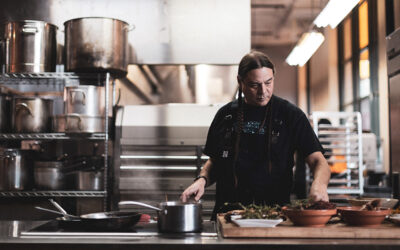
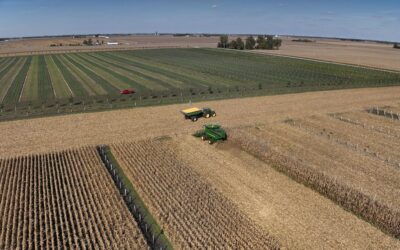
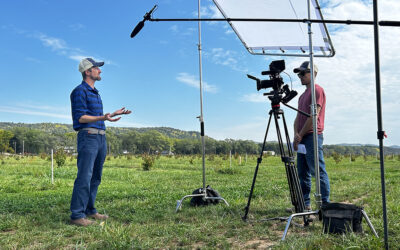
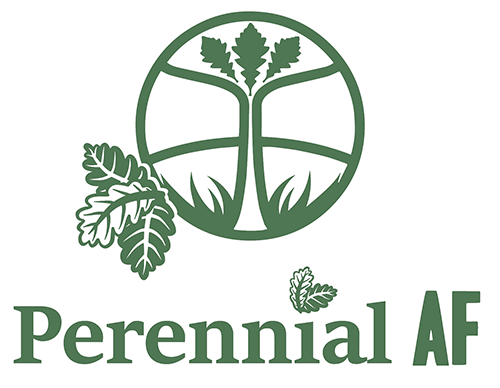


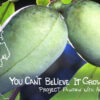 🔊 “You Can’t Believe It Grows Here” – Project Pawpaw with Adam D’Angelo
🔊 “You Can’t Believe It Grows Here” – Project Pawpaw with Adam D’Angelo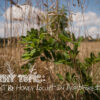 🔊 A Thorny Topic: Black Locust and Honey Locust for Agroforestry
🔊 A Thorny Topic: Black Locust and Honey Locust for Agroforestry 🔊 “Spreadsheets on the Radio” – Farm Viability and the Fruit & Nut Compass with John Hendrickson
🔊 “Spreadsheets on the Radio” – Farm Viability and the Fruit & Nut Compass with John Hendrickson 🔊 Getting Started with Forest Farming – Ingrid Daudert, Karam Sheban, and Robin Suggs
🔊 Getting Started with Forest Farming – Ingrid Daudert, Karam Sheban, and Robin Suggs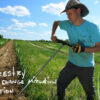 🔊 Agroforestry for Climate Change Mitigation and Adaptation – with Nate Lawrence and Monika Shea
🔊 Agroforestry for Climate Change Mitigation and Adaptation – with Nate Lawrence and Monika Shea